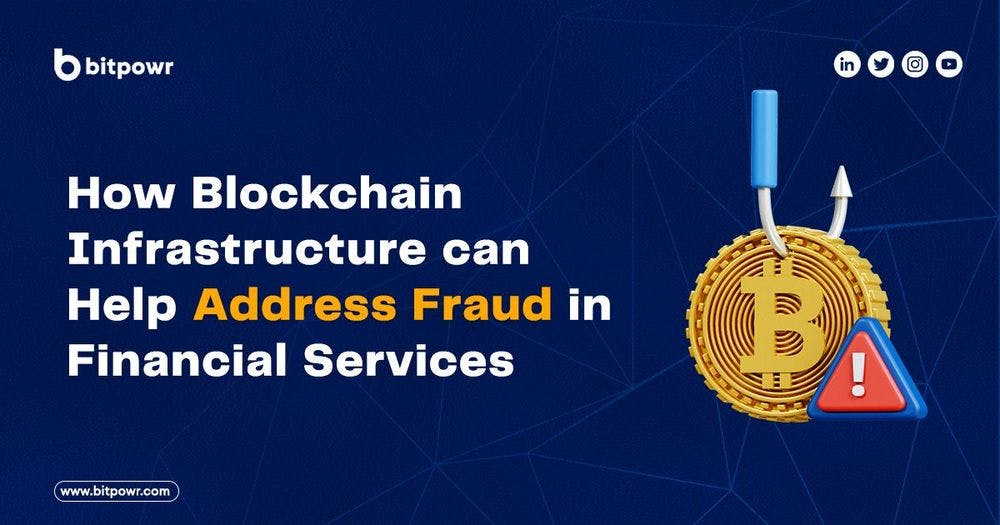Fraud is a big problem in the financial services sector. It causes companies to lose up to 3% of their yearly revenues, according to a survey by LexisNexis Risk Solutions. Not only that but for every dollar lost to fraud, companies have to spend an additional $2.67.
It’s hard for financial service providers to fight fraud because they also have to keep up with new technologies and competition. They want to offer personalized and fast services, but that can make it easier for fraudsters to take advantage. Kaspersky Lab warns that as more ways to access financial services emerge, the threats of fraud will become even more varied.
Which Types of Fraud Can Blockchain Detect?
Blockchain technology can help detect and prevent various types of fraud because of its unique features. Here are some examples:
- Double Spending: Blockchain makes it extremely difficult for someone to spend the same digital asset more than once. This is because every transaction is securely recorded and cannot be tampered with, ensuring that each asset is only spent once.
- Identity Fraud: By using blockchain, individuals can have more control over their personal information and reduce the risk of identity theft. The decentralized nature of blockchain provides a secure platform for storing identity data, making it harder for fraudsters to manipulate or steal personal identities.
- Supply Chain Fraud: Blockchain improves supply chain transparency by recording every transaction and movement of goods. This ensures that products are genuine and haven’t been tampered with during transportation. It helps in preventing counterfeit goods and fraudulent activities along the supply chain.
- Financial Fraud: Blockchain-based cryptocurrencies facilitate secure and transparent transactions. They eliminate the need for intermediaries, reducing the risk of financial fraud such as money laundering, unauthorized fund transfers, or manipulation of financial records.
- Voting Fraud: Blockchain has the potential to enhance the integrity of voting systems. By providing a transparent and unchangeable record of votes, it can prevent tampering with election results and ensure accurate counting while maintaining voter anonymity.
Blockchain Use Cases for Countering Fraud in Financial Services
- Know Your Customer (KYC): It is a process that financial institutions use to verify the identity of their customers. Due to limited access to information, banks are vulnerable to being deceived by individuals who provide false credentials or have a history of fraudulent activities with other providers. However, blockchain technology offers potential solutions by enabling banks to confirm the authenticity of customer identities without disclosing specific details about their other accounts. These systems could also simplify the process of proving one’s identity when opening accounts at different institutions, thereby reducing obstacles in acquiring new customers.
- Decentralized Ledgers: One of the features of blockchain technology that makes it particularly suitable for combating fraud is its decentralized nature. Instead of having a central authority or intermediary that controls and verifies transactions, blockchain networks rely on a network of nodes that collaborate to validate transactions. This means that there is no single point of failure, making it much harder for fraudulent actors to manipulate the system.
- Smart Contracts: Another feature of blockchain technology that can help address fraud in financial services is smart contracts. These are self-executing contracts that are executed automatically when certain predefined conditions are met. Smart contracts can be programmed to automate various processes, such as identity verification, payment processing, and compliance checks. This reduces the risk of fraud by removing the need for human intervention and reducing the likelihood of errors or manipulations.
- Impermeable Data Storage: Another benefit of blockchain technology is the ability to store data that cannot be changed or removed after it has been added to the network. Because of this, it is considerably more difficult for fraudsters to alter data and hide their trails.
- Transparency and Traceability: The transparency and traceability provided by blockchain technology can also help prevent fraud in financial services. Each transaction on the network is recorded on a public ledger that can be accessed and audited by anyone with access to the network. This means that fraudulent activities can be quickly identified and traced back to their source.
- Anti-Money Laundering (AML): Blockchain technology can also improve anti-money laundering (AML) efforts. AML regulations require financial institutions to verify the identity of their customers and monitor their transactions to detect suspicious activity that may indicate money laundering. Blockchain-based solutions can help by providing a common platform for data sharing and building trust between institutions. With a blockchain-enabled AML solution, banks can prove ownership of accounts without revealing specific details about them. This is possible through the use of zero-knowledge proofs, which allow banks to verify customer information without actually sharing it. Bitpower offers a reliable AML and KYT system for total compliance and top security
Conclusion
In conclusion, blockchain technology has the potential to address many of the challenges associated with fraud in financial services. Decentralized ledgers, smart contracts, immutable data storage, transparency, traceability, and AML solutions are just a few examples of how blockchain can be used to prevent, detect, and investigate fraud.
At Bitpowr, we offer robust AML and KYC policies you can tap into when you integrate with us. Now you can easily comply with AML regulations, protect your customers and business and build brand credibility. Learn more about our AML system here. Ready to integrate with Bitpowr? Come talk to us!




